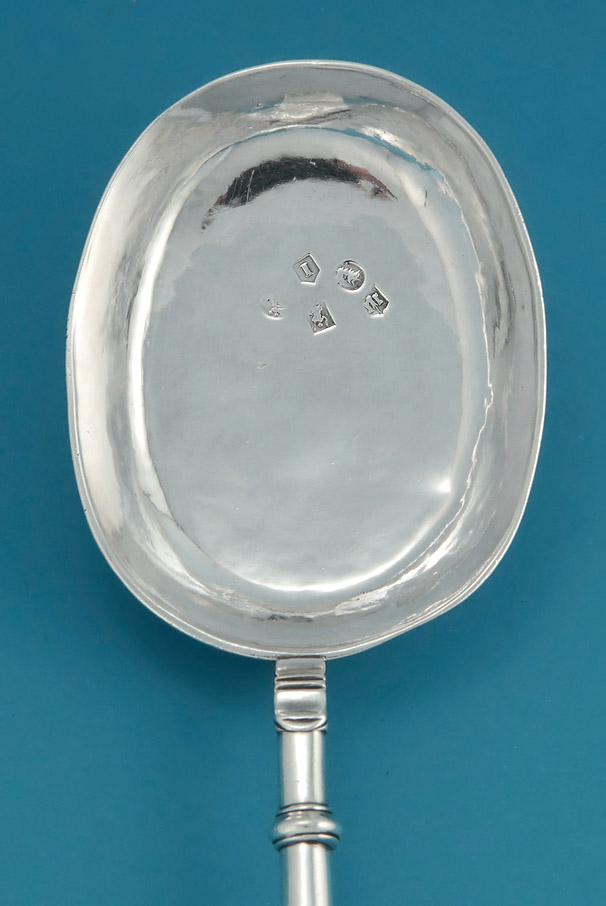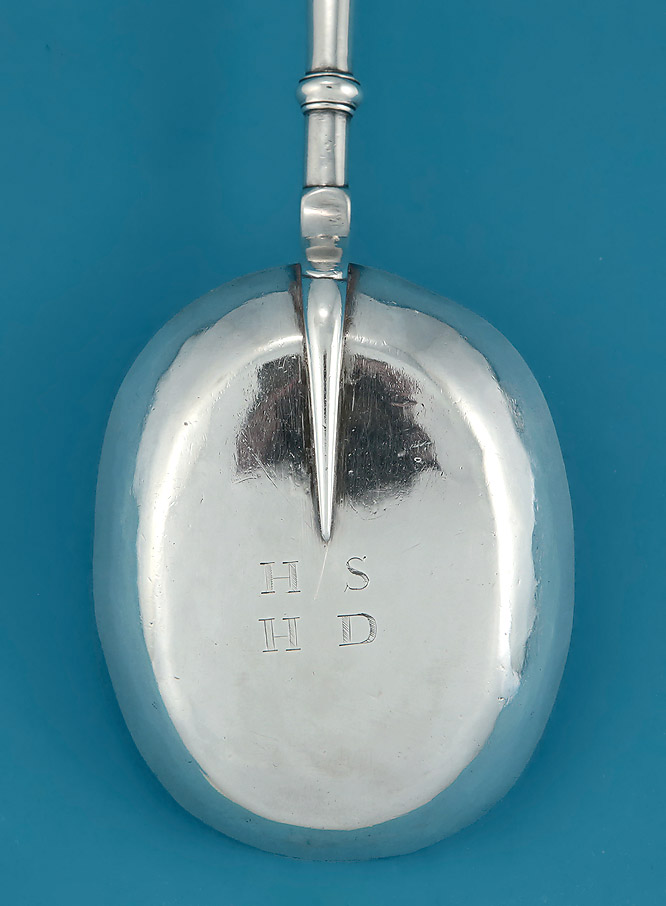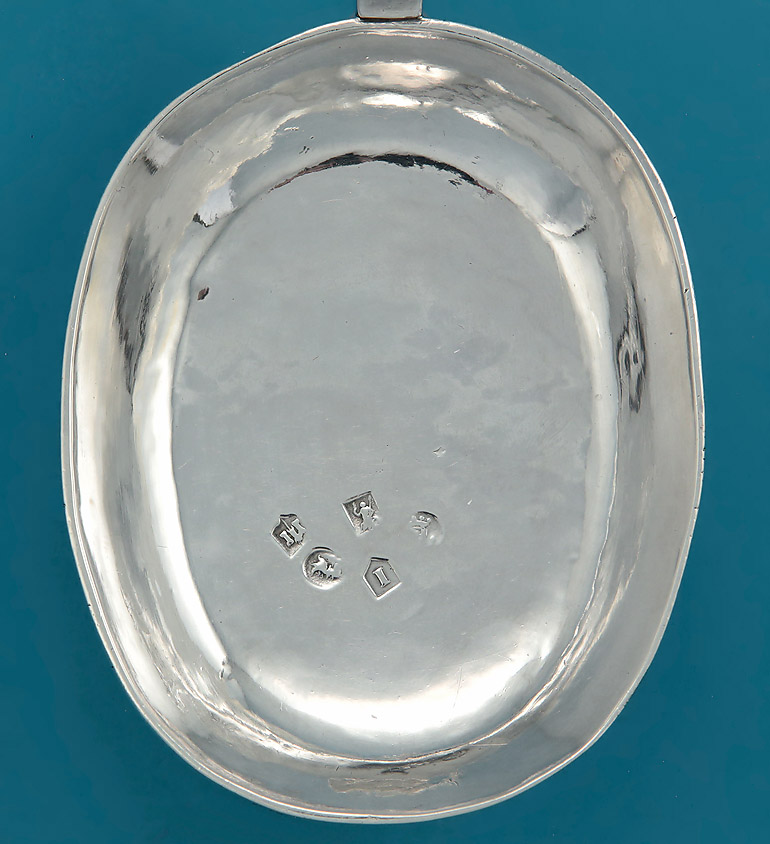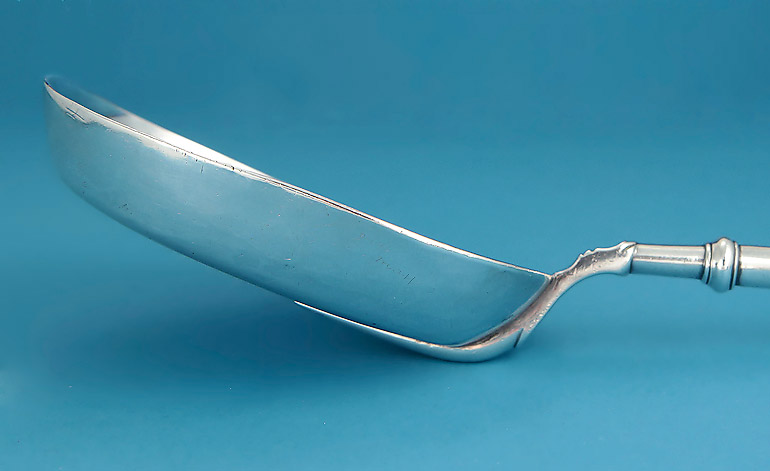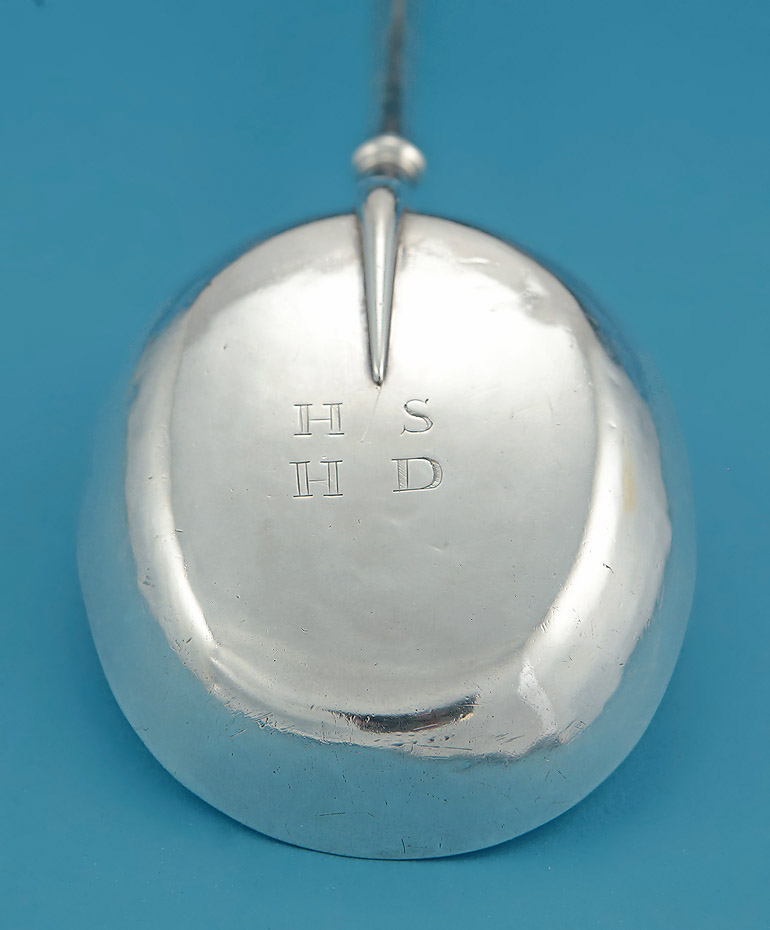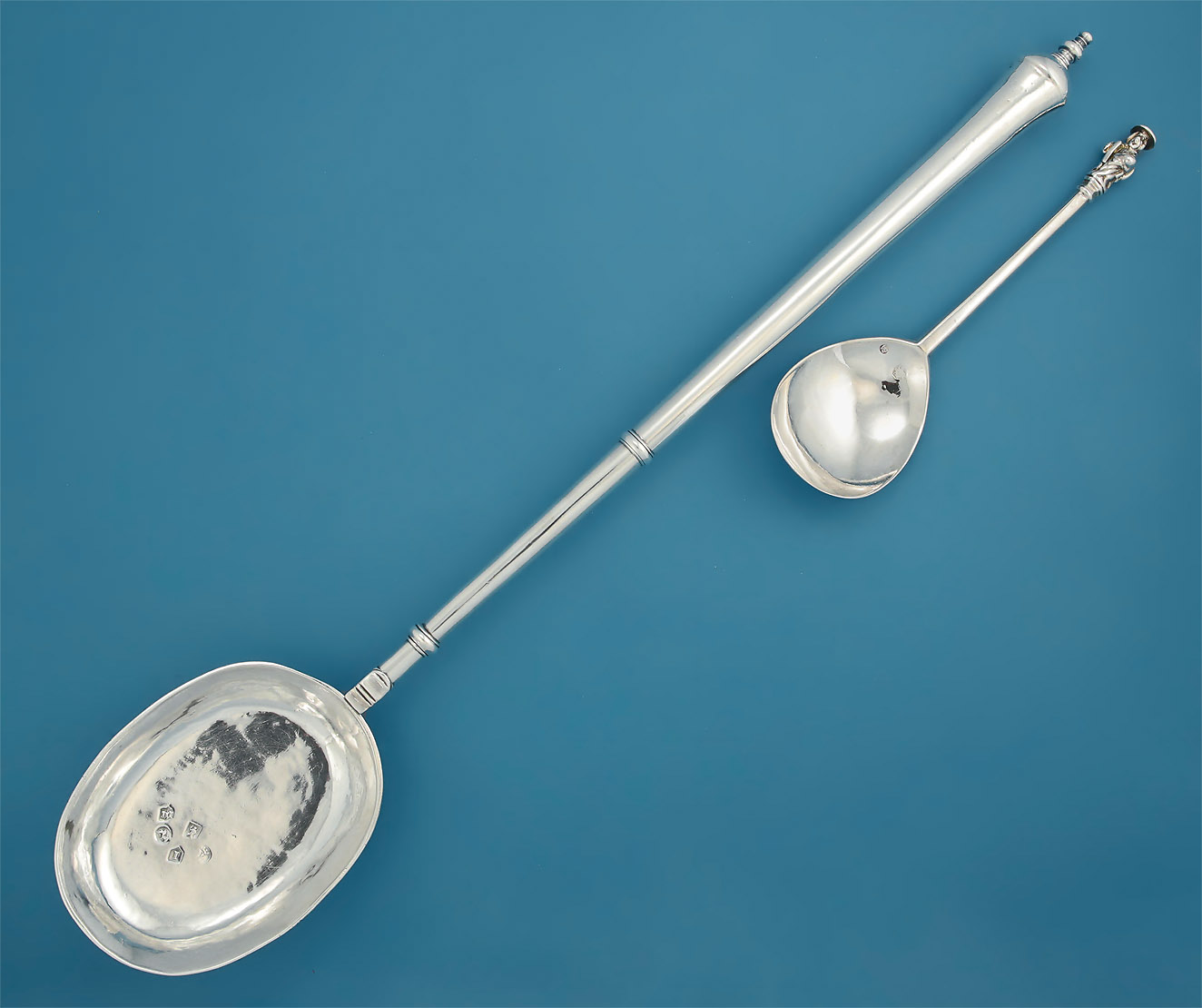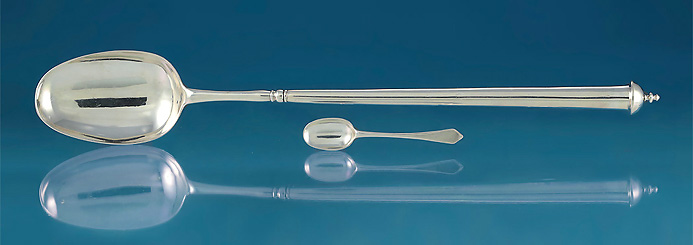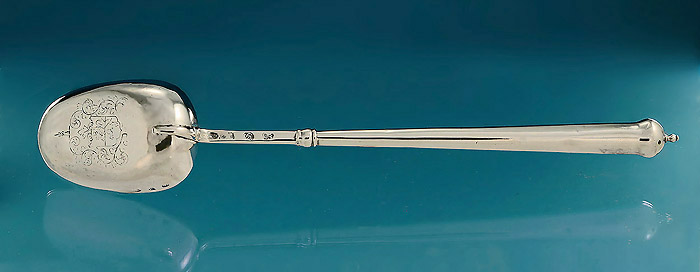A rare provincial canon handle spoon of large size and heavy gauge Britannia standard silver,
the oval bowl, flattened to the bottom and with rattail attachment,
fully marked to the center and engraved verso HS over HD,
attached to a long tubular 'canon' (also called 'cannon') handle having two spaced rings and
ending in a terminal with domed swelling and a triangular air hole, surmounted by a baluster finial
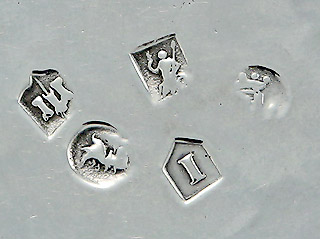
Marks :
Excellent marks, the maker's mark rubbed to the left side,
registered 1701 (Jackson's Revised, 2009, p. 292)
Accompanied by the 2008 purchase receipt
Canon Handled Spoons :
Longer handled hash or serving spoons with tubular handles were introduced in the late Charles II period.
Produced until about 1725, sizes typically ran between 14" and 16".
Made in sections, the hollow handle was an invention to prevent burning the hands of the user.
Eventually the hollow tube was proven to be impractical because it was easily bent or split.
The 17" length of this spoon is exceptional, as is the early West Country origin.
These spoons are referred to both as 'basting' and 'serving' spoons, the largest often as 'hash' spoons.
Provincial examples are excessively rare.
John Elston :
John Elston (working 1691-1732) was Exeter's most successful goldsmith of the early 18th century -
also assisting in establishing the Exeter Assay Office in 1701, and becoming Mayor in 1727.
By the end of the 17th century Exeter was entering a 'golden age' of trade and commerce.
Much of the wealth had resulted from the important West Country trade in wool and cloth.
This new class of patrons demanded a wide variety of domestic silverware.
In 1700 Exeter, Chester, Bristol, Norwich and York established their own assay offices.
The assaying of Exeter plate, begun in 1701, continued only until 1883.
Elston's workshop was continued by his brother Philip (free 1701),
and son John Elston II (mark entered 1723).
Ref : Timothy Kent, West Country Silver Spoons & Their Makers, 1550-1750, p.87-88, including the marks
See also : Sale 5015 | London, King Street | 14 July 1993
Lot 81
A Rare William III Provincial Basting Spoon,
with canon handle and baluster finial, the reverse of the deep rat-tail shaped oval bowl engraved with the initials WET,
by Robert Sheilds, Liverpool, circa 1700
Condition : Remarkably good for age; no splits or repairs observed (if present, imperceptible);
the surface with expected tiny dents that come with age; very good patination
17-1/8" (43.5 cm) Long / The Bowl, 4" x 3-1/2" x 1" Deep
Weight : 7.1 oz. / 4 Fluid oz. Volume
SOLD
#6972
Please Inquire



